
Free WordPress alternatives – WordPress is the most adaptable, adaptable, compatible, and extendable blogging platform. Due to its popularity, hackers, like Microsoft Windows, monitor the web for outdated WordPress Core, Plugins, and Themes, increasing your chances of being hijacked. This is why some people choose a lesser-known CMS merely because they only need a small blog or website that requires less upkeep.
The obstacles of creating and maintaining a website are vastly different. Many content management systems (CMS) were created by developers, for developers. For someone who can’t programme computers, building and maintaining a site with them might be complicated and scary, especially for those who only wish to focus on writing rather than coding.
Drupal and Joomla are both rather popular, but they are not immune to hacking. They, like WordPress, may be expanded with a variety of plugins and themes. What we’re looking for is a fairly simple blog CMS- Free WordPress alternatives that’s light and resource-friendly. Some people merely require a simple website to display basic information and do not require a complex CMS such as WordPress.
Free WordPress alternatives
1. Ghost

Large companies and magazines prefer Ghost for their publishing needs for a variety of reasons, including privacy, security, and speed. It’s a stunningly designed platform focused solely on publishing. Ghost is an open-source programme that allows you to create and publish your own blog, providing you with the tools to make it simple and even (gasp) enjoyable.
Ghost is a flexible, open-source platform for creating and managing modern web publications. From Zappos to Sky News, they power blogs, publications, and journalists. It’s simple, sleek, and created so you can focus on blogging rather than figuring out how to make your blog function.
- Search engine optimization — Semantic markup, permalinks, XML sitemaps, canonical tags, and automated meta data with manual overrides are all built-in.
- Accelerated Mobile Pages (AMP) — With AMP support, your site will rank higher in Google mobile search results and load in a fraction of a second.
2. Grav

Grav is an open source CMS that requires no database and is simple to use. In a nutshell, unzipping the file is all it takes to install Grav. For optimal performance, it is fast, has intelligent caching, and a small footprint. There are no complicated databases to deal with because the content is just basic markdown files in folders. Plugins can extend Grav thanks to a strong API and numerous hooks. Twig templating is flexible, allowing you to easily realise your designs.
- Grav intelligently caches information to ensure outstanding performance, regardless of hosting.
- Image Media Processing – Resize, crop, resample, and apply effects to photos in real time, with automatic image caching.
- Search Engine Optimized – Human-readable URLs, as well as site-wide and per-page metadata, offer excellent SEO benefits.
3. ProcessWire

ProcessWire was built with an approachable simplicity in mind, which is maintained regardless of scale. Simplicity isn’t always synonymous with low capabilities, which isn’t the case with ProcessWire. On the surface, the application appears to be simple, and it does not require any training. When you lift the hood, however, you’ll find enough power for just about any content requirement. The idea is to achieve the same level of simplicity as jQuery or Google (a simple interface to powerful engineering).
4. October

October is a self-hosted, free, open-source CMS built on the Laravel PHP Framework. A simple and modular CMS that adapts to your needs, with a precise and elegant UI that feels natural.
- CMS pages, layouts, and partials are all just files, with one file per template. This allows Content Version Systems like Git or SVN to handle the website themes completely.
- Built-in asset combiner — With only a single tag in your CMS templates, you can combine and minify CSS and JavaScript components. Using combined assets reduces the time it takes for pages to load and the amount of traffic it generates on your server.
5. Plone
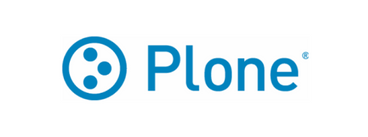
Plone is a python-based open-source content management system based on the Zope application server. Enterprise CMS is regarded for being powerful, dependable, secure, and simple to use. When it comes to standards compliance, access control, internationalisation, aggregation, user-generated content, micro-applications, active user groups, and value, Plone outperforms other content management systems. Unlike most content management systems, Plone website editing has a more “wysiwyg” feel to it.
6. Fork CMS | For Marketing
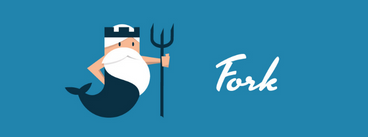
Fork CMS is committed to provide a user-friendly platform for developing, monitoring, and updating your website. We’re proud to be the Content Management System of choice for both novices and experts. Fork CMS is chock-full of amazing apps. Being a badass Content Management System comes with the territory.
7. MODX
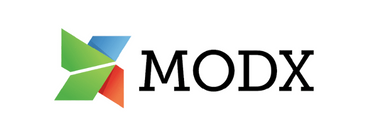
The MODX Digital Experience Platform includes everything you’ll need to create, host, and maintain stunning websites in your own unique style. You have complete control over your creative vision and the experiences you deliver using MODX CMS and cloud hosting, with no restrictions or compromises. You’ll be able to spend more time creating outstanding digital experiences and less time hosting and maintaining them.
Total creative freedom, backed by the most adaptable CMS on the market. MODX CMS fully supports your artistic vision, with no limitations or compromises. Join the MODX revolution and be prepared for everything that comes your way.
- Bootstrap, Foundation, and any other front-end technology are all supported.
- React, Vue, Angular, and any other Javascript projects are supported.
- In 2005, it supported HTML5/CSS3, and now it supports HTML6.
8. Jekyll

Create static websites and blogs from your plain text. Jekyll is a basic static site generator that is blog-aware. It takes a template directory (which represents the raw form of a website), runs it through the Liquid converters, and outputs a complete, static website that can be served with Apache or your preferred web server. This is also the engine that powers GitHub Pages, which allows you to host a page or blog for your project directly from GitHub.
- Simple – No need to install databases, comment moderation, or annoying updates—just your content.
- Markdown, Liquid, HTML, and CSS are all used in the static mode. Static sites are ready to use right away.
- Permalinks, categories, pages, articles, and custom layouts are all treated as first-class citizens in this blog.
9. Anchor CMS
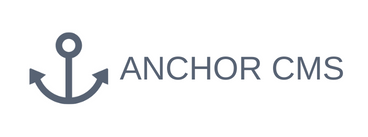
Anchor is a lightweight blog system designed to allow you to focus on writing. Knowing some basic PHP and HTML/CSS is all it takes to create and customise a theme. Anchor allows you complete control over your speech. Simply write in Markdown or HTML, if desired.
10. Pagekit

Pagekit is an open-source content management system that is both modern and lightweight. You’ll learn how to install it, use the interface, and create extensions and themes for the Pagekit platform in the documentation.
Depending on your goals using Pagekit, you may wish to skim over sections of the manual or start from scratch. We suggest using the following quick links to jump right into the various parts as a starting point.
Developing for Pagekit is a breeze thanks to a simple ORM, modular architecture, and Composer package management. Vue.js’ data-reactive components bring fun back to user interface development.
11. TYPO3

TYPO3 CMS is an Open Source Enterprise Content Management System with a big global community and support from the TYPO3 Association’s approximately 900 members. TYPO3 CMS is open-source software distributed under the GNU General Public License. You will never be charged a price to use it. This also implies that anyone can contribute to the CMS’s improvement.
- For global campaigns and organisations, scalable multisite, multilingual deployments are available.
- Anything can be connected. Architecture that is open, adaptable, pluggable, and decoupled.
- It can run in any direction. Create new sites on your existing infrastructure in minutes.
- Exceptionally fast for increased engagement and conversions.
- By design, it is secure and protects user privacy.
- A strong commercial ecology supports a vibrant professional community.
12. concreteCMS
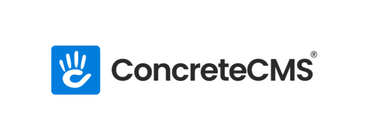
concreteCMS is a content management system that is free and open-source (CMS). You get the best of both worlds with concrete5. Anyone can create their own website in seconds, and modifying it is simple: simply click on the elements you want to change. Developers will still have access to a flexible and robust platform for creating complex web apps. Site owners, on the other hand, will be able to make adjustments and improvements on their own for years to come with concrete5.
- Your website will appear great on any device if it is mobile optimized and responsive. Designed for current browsers and mobile devices. They use the most up-to-date HTML, CSS, and Javascript approaches.
- Concrete5 is a search engine optimized without the need for any additional code or add-ons. Improve your search engine ranks right away.
- Secure – Security isn’t a choice; it’s a need. To protect your personal information, we use cutting-edge technology.